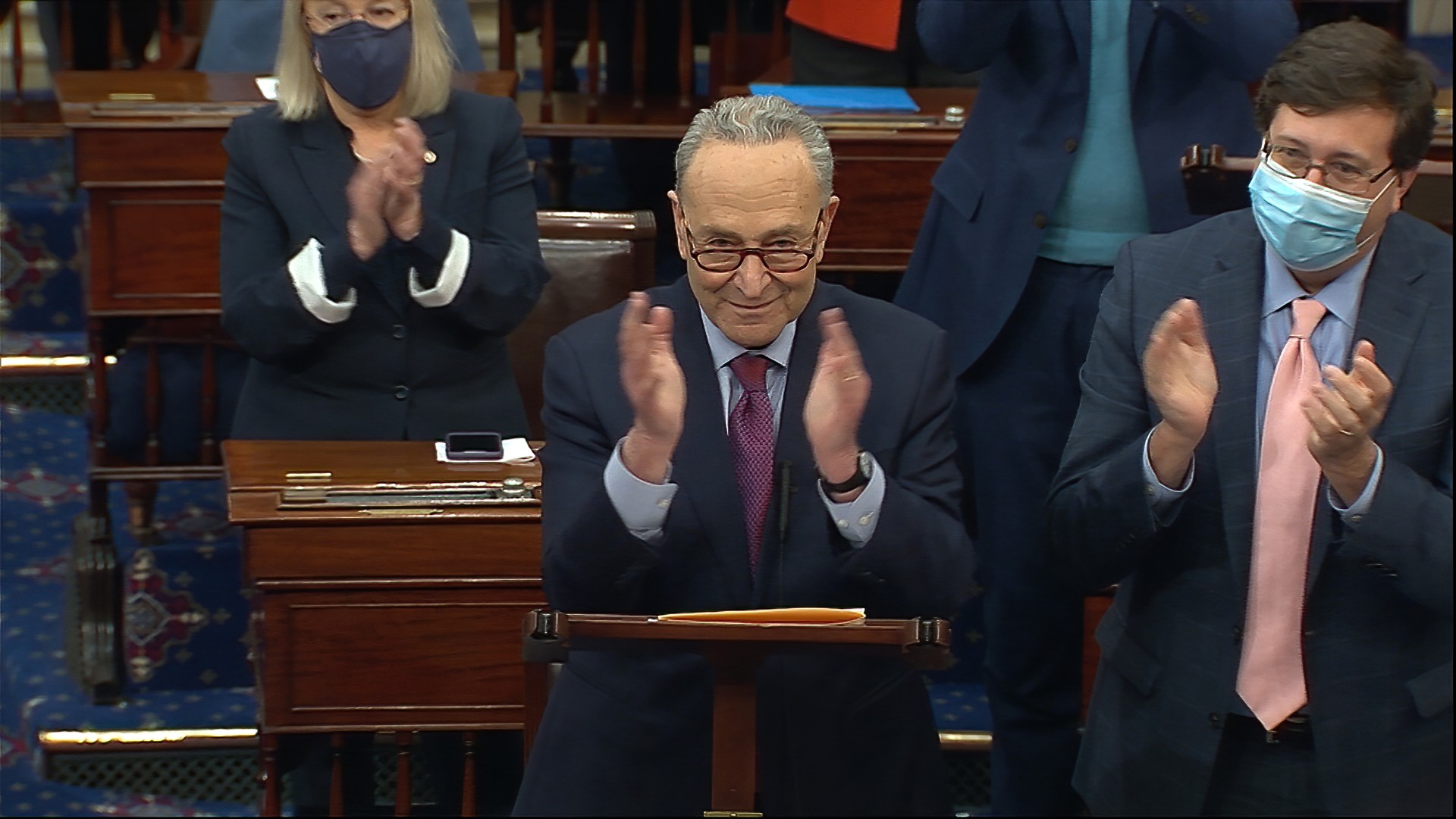
Senate passes amended bill with $1,400 checks for Family
Following an all-night session, the U.S. Senate on Saturday approved President Joe Biden’s $1.9 trillion coronavirus stimulus bill after amending the legislation — including reducing the threshold for the $1,400 direct payments and cutting the extra weekly unemployment insurance benefits.
As they did when the U.S. House passed its version of the measure, not a single Republican voted in favor. One was absent.
The legislation now goes back to the House for final passage. Lawmakers there could make more changes, but that would delay approval of legislation that Democrats planned to send to Biden by March 14, when the current extension of unemployment insurance benefits expire.
“This nation has suffered too much for much too long,” Biden said at the White House after the vote. “Everything in this package is designed to relieve the suffering and to meet the most urgent needs of the nation and put us in a better position to prevail.”
House Majority Leader Steny Hoyer, D-Md., said the chamber would take up the bill on Tuesday.
U.S. Sen. Robert Menendez, D-N.J., urged the House to act quickly.
“I urge my colleagues in the House to pass the American Rescue Plan without delay,” Menendez said after the vote. “To me, this legislation is ultimately about rescuing the American way of life, so that our children can learn in classrooms instead of on computer screens, so that we can gather with loved ones without fear, so that we can join hands in prayer in our houses of worship, enjoy a night out at our favorite restaurants, and rebuild a spirit of community across our country that we have all missed out on over the last year.”
The legislation, considered under a procedure known as reconciliation that pre-empted a filibuster and allowed passage by majority vote, includes $1,400 payments to those making up to $75,000, eliminating them entirely for those making more than $80,000, and $2,800 payments to couples making up to $150,000, while ending them for those making more than $160,000.
Those thresholds were less than the $100,000 and $200,000 cutoffs approved by the House, and the Institute on Taxation and Economic Policy, a progressive research group, said the lower income limits would mean that 400,000 fewer New Jerseyans would get stimulus checks.
Biden said the checks would be sent out starting later this month.
The legislation also would extend extra unemployment benefits of $300 a week through Sept. 6, down from $400 from the House version, and to forgive federal income taxes on up to $10,200 of unemployment insurance payments for those making less than $150,000.

